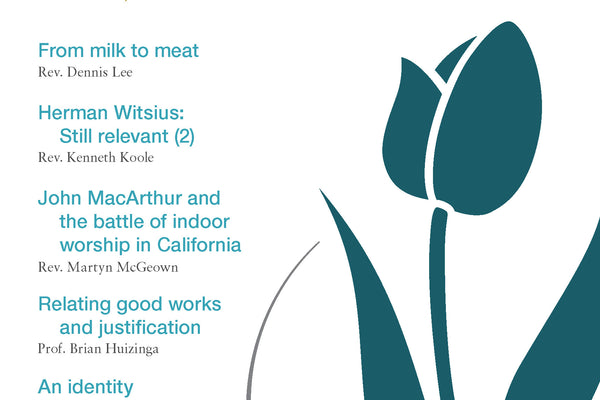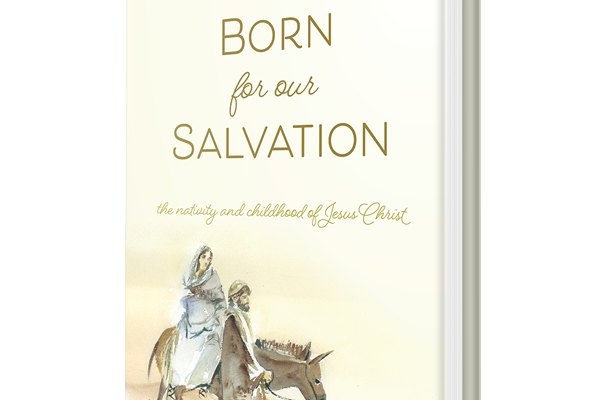Your cart is empty now.
December 1, 2020 Standard Bearer preview article
John MacArthur, pastor of Grace Community Church in Sun Valley, California is embroiled in a legal battle with the County of Los Angeles (LA County) over the right to worship indoors during the current COVID-19 pandemic. Grace Community Church (GCC) is a nondenominational, evangelical congregation with an average weekly attendance in excess of 8,000 people.
On March 4, 2020 Governor Gavin Newsom proclaimed a State of Emergency in light of the COVID-19 pandemic, and has since issued a number of executive orders to curtail public gatherings in the State of California. An order on March 19, 2020, required almost all establishments, including places of worship, to close. On June 18, 2020 the LA County Health Officer, Dr. Muntu Davis, issued an order “allowing reduced-capacity indoor operations at houses of worship,” but subsequent orders prohibited “indoor operations at a variety of establishments, including houses of worship.” Those orders are still in force at the time of writing. In California, therefore, churches may worship only outdoors.1
What’s Happening?
Coronavirus. Riots. Looting. Anarchy. Chaos. Bitterness. Strife. Division. What’s happening? Christ is coming. As we...
The Christian’s Spiritual Wardrobe (2)
As I indicated earlier these items of spiritual clothing—compassion (two items), humility (two items), patience (one item), and love (one item)—are graces (or gifts to us) and virtues (for we are called to exercise them and become active in them). In a similar way Paul writes about the armor of God in Ephesians 6: God supplies the armor, but we are commanded to put it on. These virtues are the work of the Spirit, but we are commanded to wear them or put them on.
As Christians, who have been regenerated and renewed, we choose to wear certain things and we choose not to wear other things. The unbeliever, who is dead in sin and is not renewed after the image of God, cannot choose to put on these virtues, but we can—and we do.
The Christian’s Spiritual Wardrobe
“Put on therefore, as the elect of God, holy and beloved, bowels of mercies, kindness, humbleness of mind, meekness, longsuffering; forbearing one another, and forgiving one another, if any man have a quarrel against any: even as Christ forgave you, so also do ye. And above all these things put on charity, which is the bond of perfectness” (Col. 3:12–14).
Most of us have a wardrobe at home in which we keep our clothes. Every day we open the wardrobe and we put on some of the clothes that we store there. Perhaps we have clothes that we wear on special occasions. Perhaps we have a summer wardrobe and a winter wardrobe. Perhaps there are items of clothing that we wear frequently, for they belong to our favorites. We have other items that we seldom wear. Perhaps we have our “Sunday best.”
In these verses Paul calls the Colossians—and he calls us—to put on various items. Of course, the apostle writes figuratively. He is not interested in our clothes or fashion as such. He is interested in our “spiritual wardrobe.” He urges us to put on certain spiritual clothing.
A "captivating account of the history of Christ’s birth"
The greatest miracle ever to take place was not the standing still of the sun over Joshua’s battle or water coming from the rock by the striking of Moses’ rod. The greatest miracle ever to take place was the incarnation of Almighty God, which took place when Jesus Christ was born many years ago of the virgin Mary. The magnitude of this miracle follows from its stunning implications: that the God who created the world around us, who formed each of us in the darkness of our mothers’ womb, who cannot be contained in temples made with human hands, assumed the form of a servant, took upon himself our human nature, was wrapped in swaddling clothes and laid to sleep in a manger! The preciousness of this miracle to every believer is found in God’s purpose in performing it. Jesus Christ, the Son of God incarnate, was not born to gratify our sentimentality during the holiday season. He was not born as the poster child for world peace to be displayed in nativity scenes across the nations. He was born for our salvation, which he would accomplish when he grew into the man who hung on the cross and was raised again three days later for our justification.
















